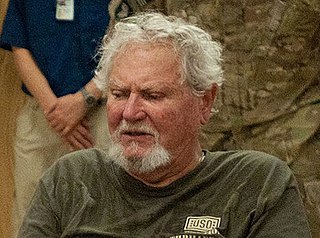A Quote by Nora Gallagher
By Cunning & Craft is a masterpiece of writing about writing. If, like Scheherazade, you had to spin out a story under threat of death, this is the how-to book to read. It's filled with thoughtful, nuanced advice from a teacher/writer who actually writes, and writes beautifully and with great humor. The list of rejected stories is worth the price of the whole book.
Related Quotes
About a year after (my stories began being published), magazine editor George Scithers, suggested to me that since I was so new at being published, I must be very close to what I had to learn to move from fooling around with writing to actually producing professional stories. There are a lot of aspiring writers out there who would like to know just that. Write that book.SFWW-I is that book. It's the book I was looking for when I first started writing fiction.
There are books full of great writing that don't have very good stories. Read sometimes for the story... don't be like the book-snobs who won't do that. Read sometimes for the words--the language. Don't be like the play-it-safers who won't do that. But when you find a book that has both a good story and good words, treasure that book.
Read Becoming a Writer by Dorothea Brande. Then do what it says, including the tasks you think are impossible. You will particularly hate the advice to write first thing in the morning, but if you can manage it, it might well be the best thing you ever do for yourself. This book is about becoming a writer from the inside out. Many later advice manuals derive from it. You don't really need any others, though if you want to boost your confidence, "how to" books seldom do any harm. You can kick-start a whole book with some little writing exercise.
[Raymond Roussel] said that after his first book he expected that the next morning there would be a kind of aura around his person and that everyone in the street would be able to see that he had written a book. This is the obscure desire harboured by everyone who writes. It is true that the first text one writes is neither written for others, nor because one is what one is: one writes to become other than what one is. One tries to modify one's way of being through the act of writing.
The second book, which was probably more from a professional standpoint - when I read Junot Díaz's Drown, I was like, Oh my god, you can write these stories and people will actually read them beyond your own little community. This guy's book is blowing up and it seems like [he's writing about] the neighborhood that I grew up in. That was a big deal. I read that in graduate school, so that's when I was really taking writing seriously, but I didn't know you could do it. I didn't know you can actually be an author. It was a weird epiphany.
The people who review my books, generally, are kind of youngish culture writers who aspire to write books. When someone writes a book review, they obviously already self-identify as a writer. I mean, they are. They're writers, they're critics, and they're writing about a book about a writer who's a critic. So I think it's really hard for people to distance themselves from what they're criticizing.
I started writing the book without realizing I was writing a book. That sounds stupid, but it's true. I'd been trying and failing to make a different manuscript work, and I thought I was just taking a break by writing some short stories. I'm not a very good short story writer - the amazing compression that is required for short stories doesn't come easily to me. But anyway, I thought I'd try to write some short stories. And a structure took shape - I stumbled upon it.
Intelligent, heartfelt stories that tell a whole new set of truths about growing up American. Julie Orringer writes with virtuosity and depth about the fears, cruelties, and humiliations of childhood, but then does that rarest, and more difficult, thing: writes equally beautifully about the moments of victory and transcendence.
































